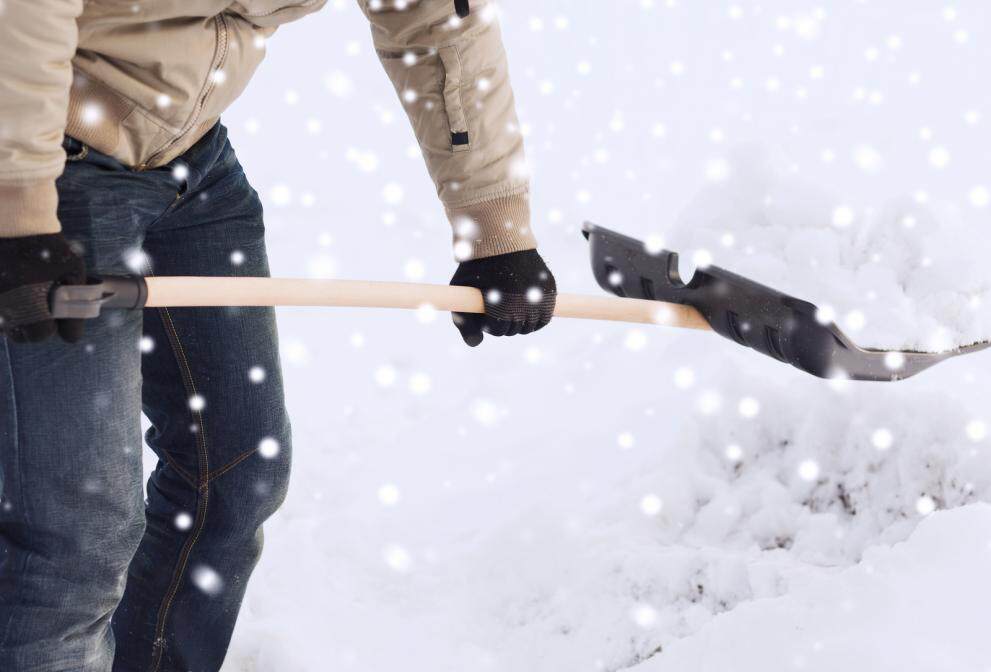Winter-Related Workplace Injuries

Every year, the winter season brings with it a new set of safety challenges for outdoor workers in Pennsylvania. Snow and fog cause reduced visibility while the ice increases the risk of collision and slips and falls and the freezing cold temperature results in frostbite, hypothermia and other cold-related illnesses.
According to the US Department of Labor (BLS report), there were approximately 42,480 winter-related workplace injuries in the US in 2014. Pennsylvania was the second-highest state in terms of winter work injuries with over 2,390 only behind New York. Due to strong winds, heavy precipitation and low temperatures, workers in Pennsylvania have to battle the elements of winter when performing their job duties.
Common Winter-Related Workplace Injuries and Illnesses
According to our experienced workers’ compensation lawyer in Pennsylvania who has handled numerous cases on winter-workplace injuries, here are the most common ones:
• Slips and falls
The rain, sleet and snow that fall during the winter months create slippery surfaces. And when temperatures drop after a snowfall, the water turns into ice, which makes the conditions even more dangerous. Thus, due to the prevalence of slippery and icy conditions, the risk of slip and fall is quite high, which can lead to serious injuries like:
- Shoulder injuries
- Sprains or broken bones
- Head injuries
- Spinal cord injuries
- Neck injuries
• Back Injuries
Winter marks a great deal of shoveling of salt, snow and ice melt, which requires heavy lifting. Shoveling and heavy lifting can put a lot of strain on the back muscles, causing injuries and can also lead to disc issues.
Therefore, in order to prevent back injuries, employers should provide workers with snow blowers to remove snow. But if shoveling is necessary, then it should be done in small sections at a time while smaller sections should be used to move salt, ice melt and snow instead of heavy bags.
• Frostbite
Outdoor workers are often exposed to the risk of frostbite during cold weather. This condition is more severe than frostnip, which is the first stage of frostbite. Frostbite occurs when bare skin is exposed to freezing cold temperatures like -15°C.
At freezing cold temperatures, the skin tissue freezes and dies, thus causing skin hardness and redness that is followed by the skin turning black or dark blue. This can result in long-term or permanent injuries.
Common symptoms of frostbite include:
- Cold skin
- Prickling fingers
- Hard skin
- Discolored skin
- Muscle and joint stiffness
Frostbite is common in the hands, feet, the face and ears. In order to avoid them, employees need to be provided with proper winter safety gear like gloves, boots, heavy socks, ear muffs, hat and scarf – to name a few – by their employers. Also, they should be supplied with heaters when possible and needed and given frequent indoor breaks so that they can rest and warm up.
• Hypothermia
Another serious winter-related illness that many outdoor workers are likely to suffer from is hypothermia. This is a condition when the body loses too much heat because of the cold weather. In this condition, the body temperature falls below 95, which causes a person’s heart, nervous system and other body organs to fail, thereby resulting in immediate death.
However, in the case of mild hypothermia, the person may experience symptoms like nausea, rapid heart rate, fatigue, fast breathing and lack of coordination. So, the best way to avoid this condition is to dress properly and don’t spend long hours outside.
• Vehicle Collisions
There are many professions that require employees to drive to suppliers, clients and different work sites. During winters, the slew of driving hazards is high due to slippery roads that cause reduced tire traction, thereby resulting in slips and skids while rainfall and fog can lead to poor visibility. All these conditions can lead to vehicle collisions causing serious injuries like:
- Spine, neck and back injuries
- Shoulder injuries
- Head injuries
- Concussions
- TBI
- Soft tissue injuries
- Bone fractures
- Ankle injuries
- Internal bleeding
In such situations where employees need to drive to other sites for work purpose, employers should ensure that all the work vehicles are well-maintained and equipped with safety kits. Furthermore, work vehicles should be winterized with winter tires and chains for improved safety. Workers should follow safe driving practices when heading out on a delivery or work call, and also check the weather before hitting the road.
Contact our Workers’ Compensation Lawyer in Pennsylvania
If you have sustained winter-related injuries at or because of work, make sure to notify your employer so that you can benefit from workers’ compensation. Also, seek legal assistance from our experienced workers’ compensation lawyer in Pennsylvania immediately. This is important to do so because the claims process is often complex, which makes it quite difficult for the injured workers to comprehend the rules and benefits of the workers’ compensation system.
At Cherry Injury Law, our workers’ compensation lawyer has a wealth of experience in this domain and has helped hundreds of employees receive the benefits that they require to cope with all the medical expenses pertaining to their treatment for winter-related workplace injuries and compensate for the lost wages due to missed work days. So, call us today to schedule a free initial consultation with our lawyer and to discuss your case with us. We will evaluate and assess your case and then suggest the best course of legal action in your situation.








 Cherry Injury Law RSS Feed
Cherry Injury Law RSS Feed



